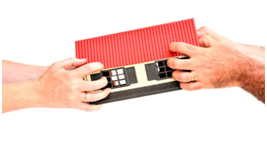Cambridge is a city in the Middlesex County Massachusetts in the Boston area, United States, divorce and foreclosure are not new terms in Cambridge and they are most happen simultaneously. After divorce the major reason as to why a foreclosure may result is due to the splitting of the family incomes whereby if one chooses to keep the home finds it difficult to keep paying the mortgage or both of the two want to get rid of it so as to do away with the memories attached the following are the issues to bear in mind after divorce regarding foreclosures.
Responsibility of the mortgage
The spouse could have acquired the mortgage and signed the note jointly or one of them had taken out the mortgage and signed the note on their own, in the former case they both will be equally responsible for the mortgage payments after their divorce but if it was the latter, the individual spouse will be solely liable for the mortgage and the same goes for deficiency judgments that may arise after foreclosure.
Home ownership
One or none of the spouses wants to remain in the home after their divorce, if none wants to remain in the home its almost definite that both will neglect their monthly payments which will end up in a foreclosure, where one of them is determined to continue residing there and making the monthly dues relieving the other spouse’s responsibility towards the mortgage debt he or she has two options:
- Loan assumption: you will assume the mortgage and take over the responsibility for the loan however you have to seek the lender’s approval which he/she might be reluctant to offer you unless you show that you make a sufficient amount of income to make the monthly payments.
- Refinance the mortgage: the spouse here will refinance the property in his or her sole name to release the co-borrower from the debt obligations sometimes this is what is demanded in their for the spouse who intends to stay in the home thus relieving the other spouse’s duty to the debt in the future.
If they had originally taken out the mortgage and signed the note jointly and the spouse who retains the sole ownership of their former home stops making payments and makes no effort towards assuming or refinancing the loan, the other former spouse is still responsible for repayment and the lender may consider foreclosing on the property and this would damage the credit scores of the spouses and can be followed by a joint deficiency judgment.
No spouse wants to keep the home
Where both the ex-husband and ex-wife do not want to retain the home but they wish to avoid a foreclosure, the following are the options available for them: sell the property and pay off the debt from the proceeds; rent out the home and commit the rental income to pay the monthly payments; agree on a short sale with your lender, or complete a deed in lieu of foreclosure.
Lastly if considering a divorce and having concerns about your obligations towards your home mortgage debt, be advised to seek the assistance of a qualified attorney for legal advice about your particular situation.
Sources :
http://www.divorcenet.com/resources/divorce/marital-property-division/facing-foreclosure.htm
http://www.alllaw.com/articles/nolo/foreclosure/during-divorce.html
http://www.nolo.com/legal-encyclopedia/foreclosure-divorce.html
http://info.legalzoom.com/foreclosure-getting-divorced-20847.html
http://homeguides.sfgate.com/divorce-mortgage-foreclosure-77317.html

